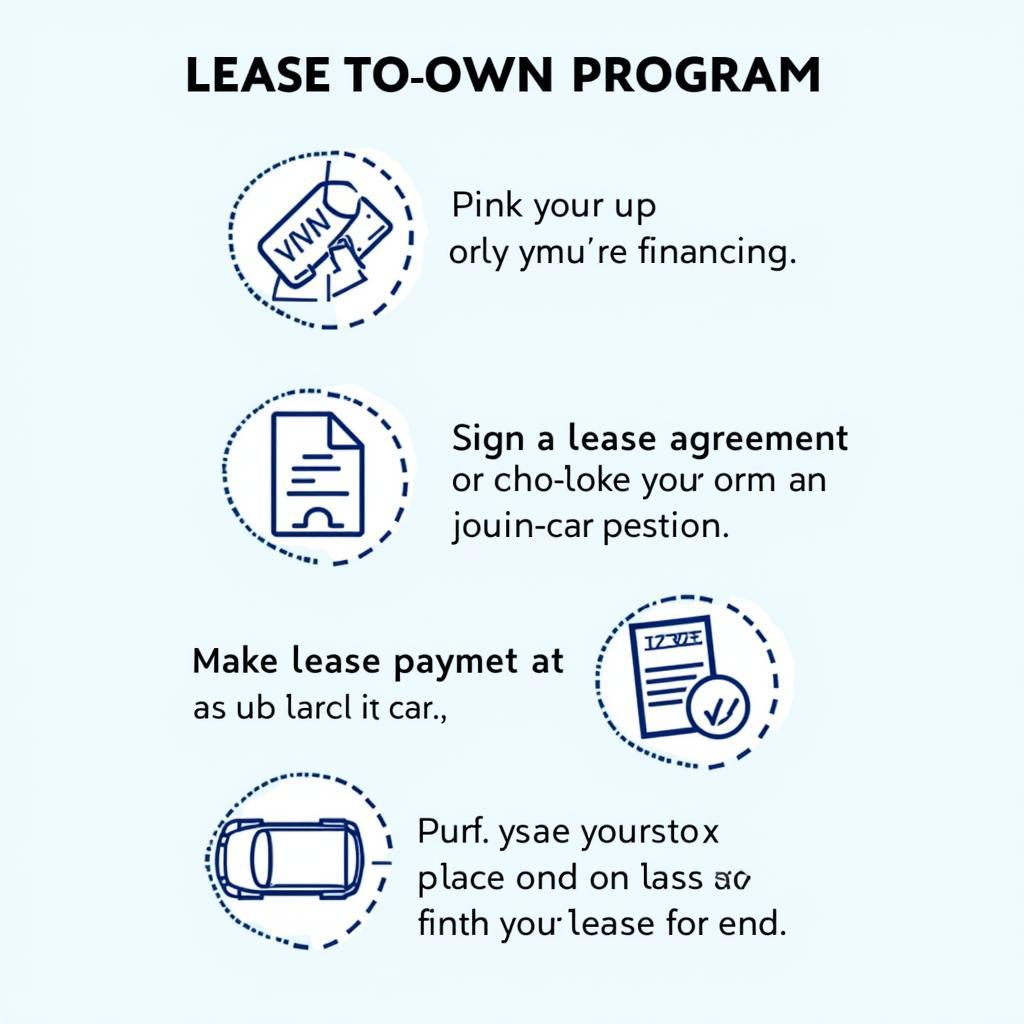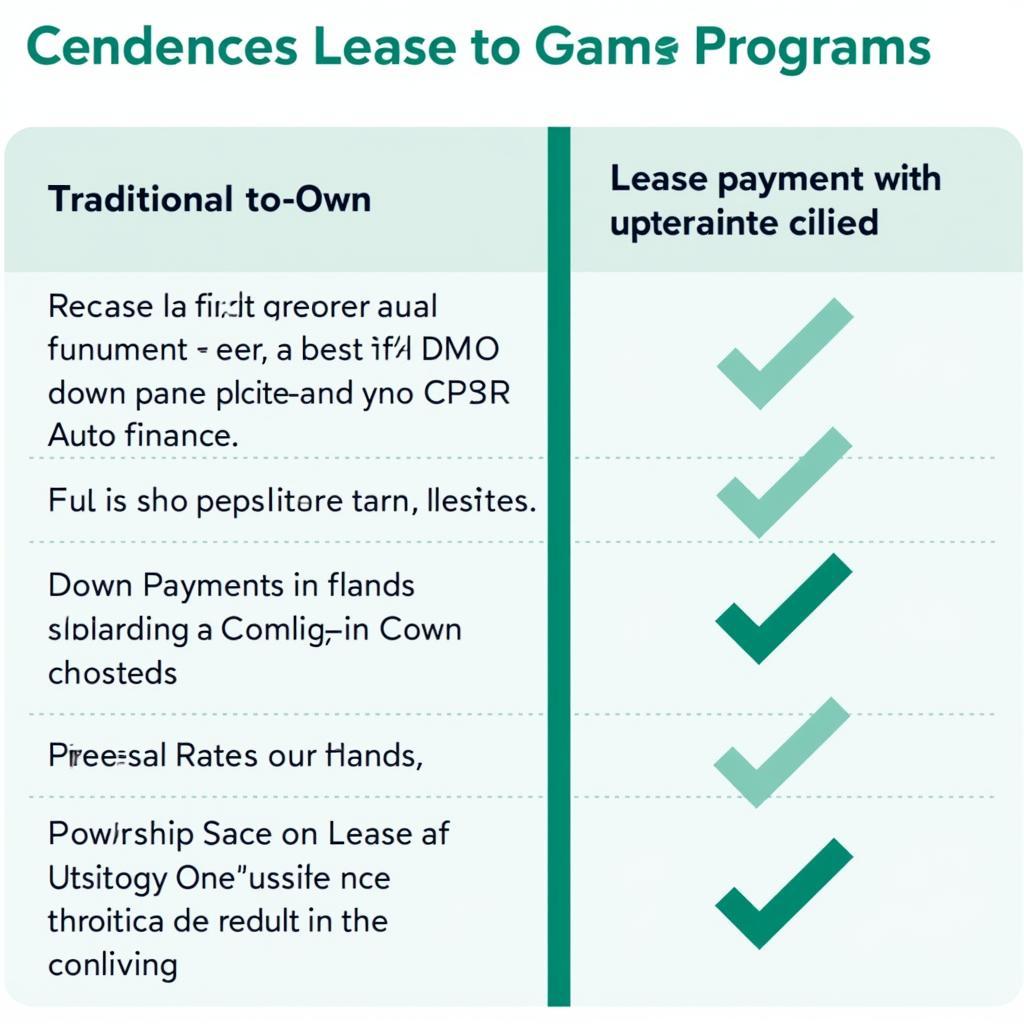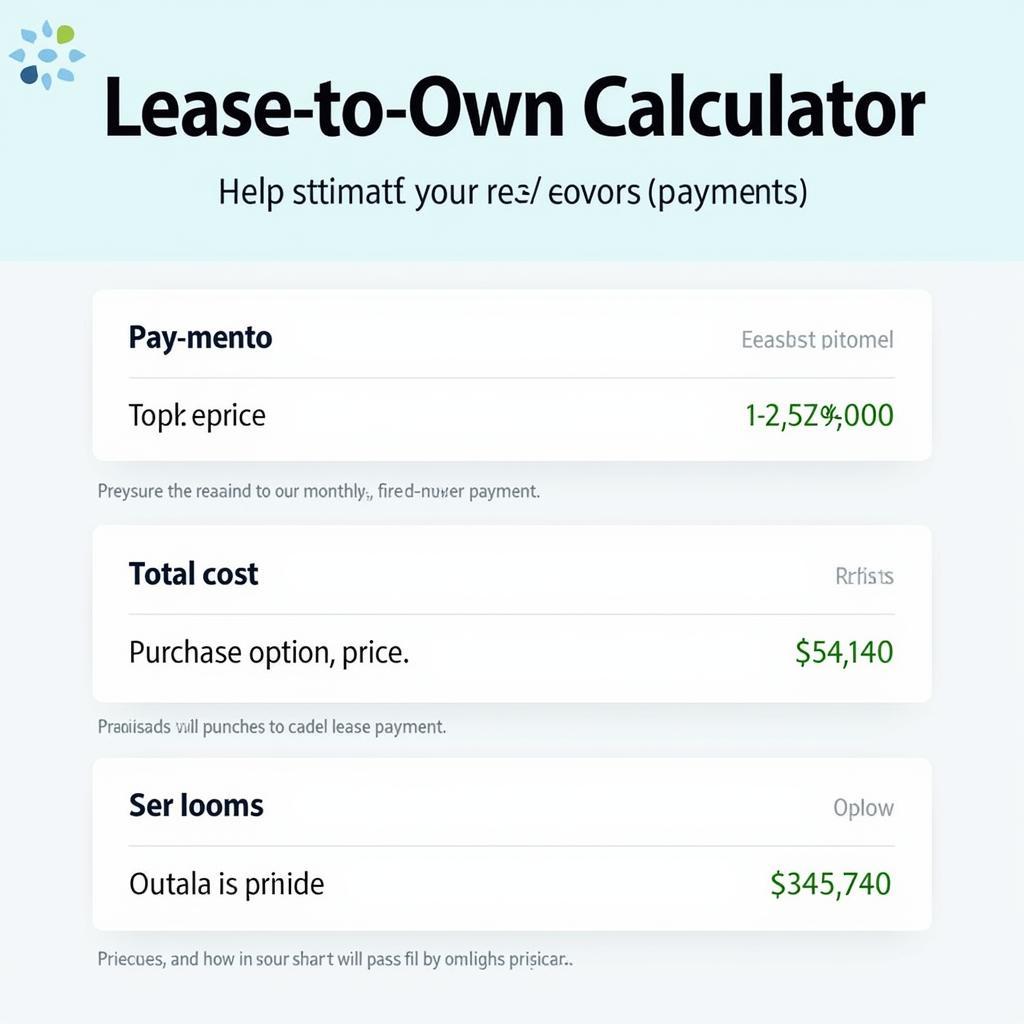Leasing a car is a popular option for many people, as it offers several advantages over traditional financing. One such advantage is the ability to lease to own a car. But what exactly is lease to own and how does it work?
Lease to own, also known as rent to own, is a type of financing where you make regular payments for a set period of time, with the option to purchase the car at the end of the lease term. While similar to traditional leases, lease to own programs usually include an equity buildup, meaning a portion of your monthly payments goes towards owning the car. This makes it a more affordable option for people who want to eventually own a car, but may not be able to afford a large down payment or have bad credit.
How Does Lease to Own Work?
Here’s a breakdown of the lease to own process:
- Find a car: You’ll need to find a car that’s eligible for a lease to own program. Not all dealerships offer this option, so you’ll need to do some research to find one that does.
- Apply for financing: Once you’ve found a car, you’ll need to apply for financing through the dealership or a third-party lender. The lender will assess your credit history and income to determine if you qualify for the program.
- Sign a lease agreement: If you’re approved for financing, you’ll sign a lease agreement that outlines the terms of the lease, including the monthly payment, lease term, purchase option, and any applicable fees.
- Make regular payments: You’ll make monthly payments for the duration of the lease term. A portion of these payments will go towards owning the car.
- Purchase option: At the end of the lease term, you’ll have the option to purchase the car for a predetermined price, usually a reduced amount compared to the original price.
Benefits of Lease to Own
Lease to own offers several benefits over traditional financing, making it an attractive option for some individuals:
- Lower down payment: Lease to own programs often require a lower down payment than traditional financing, making it easier for people with limited funds to get into a car.
- Predictable payments: Your monthly payments will be fixed for the duration of the lease term, making it easier to budget for your car expenses.
- Equity buildup: With each payment, you’ll be building equity in the car, which can be a valuable asset down the road.
- Flexibility: You can choose to purchase the car at the end of the lease term or return it to the lender. This gives you flexibility in case your financial situation changes.
Disadvantages of Lease to Own
While lease to own can be a good option for some, it also has its downsides:
- Higher interest rates: Lease to own programs generally have higher interest rates compared to traditional financing.
- Limited selection: Not all dealerships offer lease to own programs, and the selection of cars available may be limited.
- Purchase option price: The purchase option price at the end of the lease term may be higher than the market value of the car.
- Early termination fees: If you decide to terminate the lease early, you may be subject to early termination fees.
Is Lease to Own Right For You?
“Lease to own is not a one-size-fits-all solution,” says Jane Doe, a certified financial advisor specializing in automotive financing. “It’s crucial to carefully consider your individual financial situation and needs before deciding if it’s the right option for you.”
Here are a few things to consider:
- Your credit score: If you have a low credit score, lease to own may be a more accessible option than traditional financing. However, you may still be subject to higher interest rates.
- Your budget: Consider your monthly budget and whether you can afford the lease payments. It’s important to budget for the purchase option price at the end of the lease term, as well.
- Your driving habits: If you’re planning to drive a lot or are prone to accidents, lease to own may not be the best option, as you’ll be responsible for any damage to the car.
- Your financial goals: Do you want to build equity in a car or are you looking for a short-term transportation solution?
Choosing a Lease to Own Program
When choosing a lease to own program, it’s important to do your research and shop around for the best deal. Here are a few tips:
- Compare interest rates and terms: Get quotes from multiple lenders to compare interest rates, lease terms, and purchase option prices.
- Read the fine print: Carefully review the lease agreement before signing to understand all the terms and conditions, including any fees or penalties.
- Consider the car’s market value: Research the market value of the car to ensure the purchase option price is fair.
- Check the dealership’s reputation: Read online reviews of the dealership to get an idea of their customer service and reputation.
Frequently Asked Questions
Q: What are the typical lease terms for a lease to own program?
A: Lease terms for lease to own programs typically range from 24 to 72 months. The longer the lease term, the lower the monthly payment will be, but the higher the total cost of the lease will be.
Q: Can I lease to own a used car?
A: Yes, you can lease to own a used car. However, the availability of used cars in lease to own programs may be limited.
Q: What happens if I don’t purchase the car at the end of the lease term?
A: If you decide not to purchase the car at the end of the lease term, you’ll have to return it to the lender. You may be responsible for any damage to the car beyond normal wear and tear.
Q: What are the potential risks of lease to own?
A: Some potential risks of lease to own include:
- Higher total cost: Lease to own programs can have higher interest rates and fees, resulting in a higher total cost compared to traditional financing.
- Early termination fees: You may be subject to early termination fees if you decide to end the lease early.
- Purchase option price: The purchase option price may be higher than the market value of the car.
Q: What are some alternative financing options to lease to own?
A: If you’re not sure if lease to own is the right option for you, there are several alternative financing options available, including:
- Traditional auto loans: These loans offer fixed interest rates and a set repayment schedule.
- Car loans for bad credit: These loans are available for people with lower credit scores, but they often come with higher interest rates.
- Used car loans: These loans are specifically designed for used car purchases.
Conclusion
Lease to own can be a viable option for individuals looking to build equity in a car and own it eventually. However, it’s crucial to weigh the benefits and drawbacks carefully and compare it to alternative financing options. Before making a decision, make sure to do your research, shop around for the best deal, and understand all the terms and conditions of the lease agreement.
 Lease to Own Car Process
Lease to Own Car Process
 Lease to Own vs Traditional Financing
Lease to Own vs Traditional Financing
 Lease to Own Calculator
Lease to Own Calculator
If you have any questions or need further guidance, feel free to contact us. We have a team of experts available 24/7 to assist you with your automotive financing needs.
Contact us:
WhatsApp: +1(641)206-8880
Email: [email protected]
Address: 276 Reock St, City of Orange, NJ 07050, United States.


